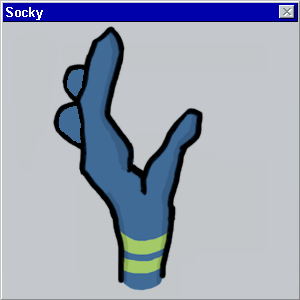Contented rest, with sweet and heart-felt joy
November 5, 2013 6:11 AM Subscribe
(That said, the essays are much longer and more detailed than I expected. I look forward to the opinions of people better educated about music than I am, about how accurate they are.)
posted by wenestvedt at 6:32 AM on November 5, 2013
posted by wenestvedt at 6:32 AM on November 5, 2013
Are they like "1994 web page about Knight Rider"-quality midis, or worth hearing?
As always with MIDI files, the answer to that will largely depend on what device you play them through.
posted by Wolfdog at 6:43 AM on November 5, 2013
As always with MIDI files, the answer to that will largely depend on what device you play them through.
posted by Wolfdog at 6:43 AM on November 5, 2013
In case it's not clear, you can search the site by BWV number in the search bar pretty easily, and it will pull in a corresponding essay if it's available.
posted by Think_Long at 6:51 AM on November 5, 2013
posted by Think_Long at 6:51 AM on November 5, 2013
Ah, Bach.
This is a great reference for students and newcomers to the cantatas! For those who wish to dig deeper, Bach-Cantatas.com is probably the authority on the subject. It has been around for years, and regularly hosts discussions on specific cantatas. They also have a huge archive of discographies and reviews. Of course, head over to the Petrucci Music Library to download a score for any cantata your heart desires.
As for recordings, I've been collecting Gardiner's Bach Cantata Pilgrimage recordings since he began releasing them and I can't recommend them highly enough. For those internet savvy pirates, there ARE complete torrents available, at a whopping 16 GB of pure religious awesomeness. However, the beautifully packaged discs (with photos by Steve McCurry) include copious notes and an amazingly informative diary written by the conductor himself. Gardiner uses approximately sixteen singers in his choir, giving the music a larger and more grand quality, while still maintaining a very intimate overall aesthetic.
If you are interested in something "new" by the way of something "old", the musician/scholar Joshua Rifkin has made recordings using only one singer on each vocal part, with a very small instrumental ensemble. Historically, this could be the most accurate way of performing the cantatas, but honestly we will never know for sure. Rifkin created a small controversy when he first delivered his paper on the size of Bach's choir, but the one-voice-to-a-part movement has grown and developed quite beautifully. Andrew Parrott, Paul McCreesh and others have followed Rifkin's lead and released absolutely gorgeous recordings of Bach's Passions and Cantatas.
For the curious, I found a YouTube which conveniently juxtaposes the Rifkin/Gardiner approach by providing two recordings of the same piece. Which one do you prefer? I love both, thanks!
Some of my personal faves (linked to YouTube recordings if possible):
BWV 7 (1, 2)
BWV 12
BWV 100
BWV 108
BWV 117 (1, 2)
BWV 140
BWV 147 ** Bonus! A recording by Gardiner complete with a score to follow in the video.
posted by ReeMonster at 9:00 AM on November 5, 2013 [11 favorites]
This is a great reference for students and newcomers to the cantatas! For those who wish to dig deeper, Bach-Cantatas.com is probably the authority on the subject. It has been around for years, and regularly hosts discussions on specific cantatas. They also have a huge archive of discographies and reviews. Of course, head over to the Petrucci Music Library to download a score for any cantata your heart desires.
As for recordings, I've been collecting Gardiner's Bach Cantata Pilgrimage recordings since he began releasing them and I can't recommend them highly enough. For those internet savvy pirates, there ARE complete torrents available, at a whopping 16 GB of pure religious awesomeness. However, the beautifully packaged discs (with photos by Steve McCurry) include copious notes and an amazingly informative diary written by the conductor himself. Gardiner uses approximately sixteen singers in his choir, giving the music a larger and more grand quality, while still maintaining a very intimate overall aesthetic.
If you are interested in something "new" by the way of something "old", the musician/scholar Joshua Rifkin has made recordings using only one singer on each vocal part, with a very small instrumental ensemble. Historically, this could be the most accurate way of performing the cantatas, but honestly we will never know for sure. Rifkin created a small controversy when he first delivered his paper on the size of Bach's choir, but the one-voice-to-a-part movement has grown and developed quite beautifully. Andrew Parrott, Paul McCreesh and others have followed Rifkin's lead and released absolutely gorgeous recordings of Bach's Passions and Cantatas.
For the curious, I found a YouTube which conveniently juxtaposes the Rifkin/Gardiner approach by providing two recordings of the same piece. Which one do you prefer? I love both, thanks!
Some of my personal faves (linked to YouTube recordings if possible):
BWV 7 (1, 2)
BWV 12
BWV 100
BWV 108
BWV 117 (1, 2)
BWV 140
BWV 147 ** Bonus! A recording by Gardiner complete with a score to follow in the video.
posted by ReeMonster at 9:00 AM on November 5, 2013 [11 favorites]
« Older The highs and lows of caring for a drug-dependent... | It's already extensive. Newer »
This thread has been archived and is closed to new comments


posted by wenestvedt at 6:31 AM on November 5, 2013 [1 favorite]